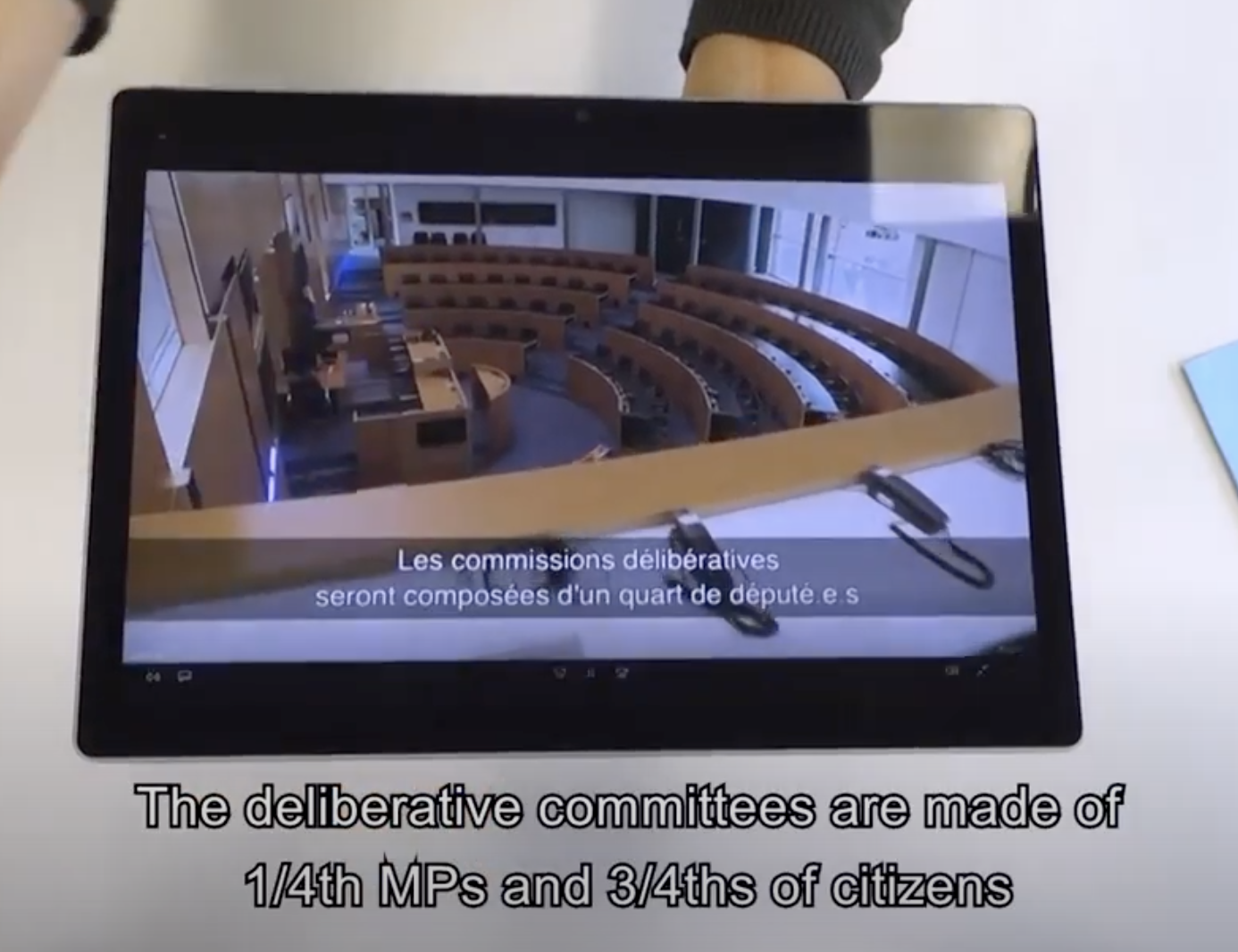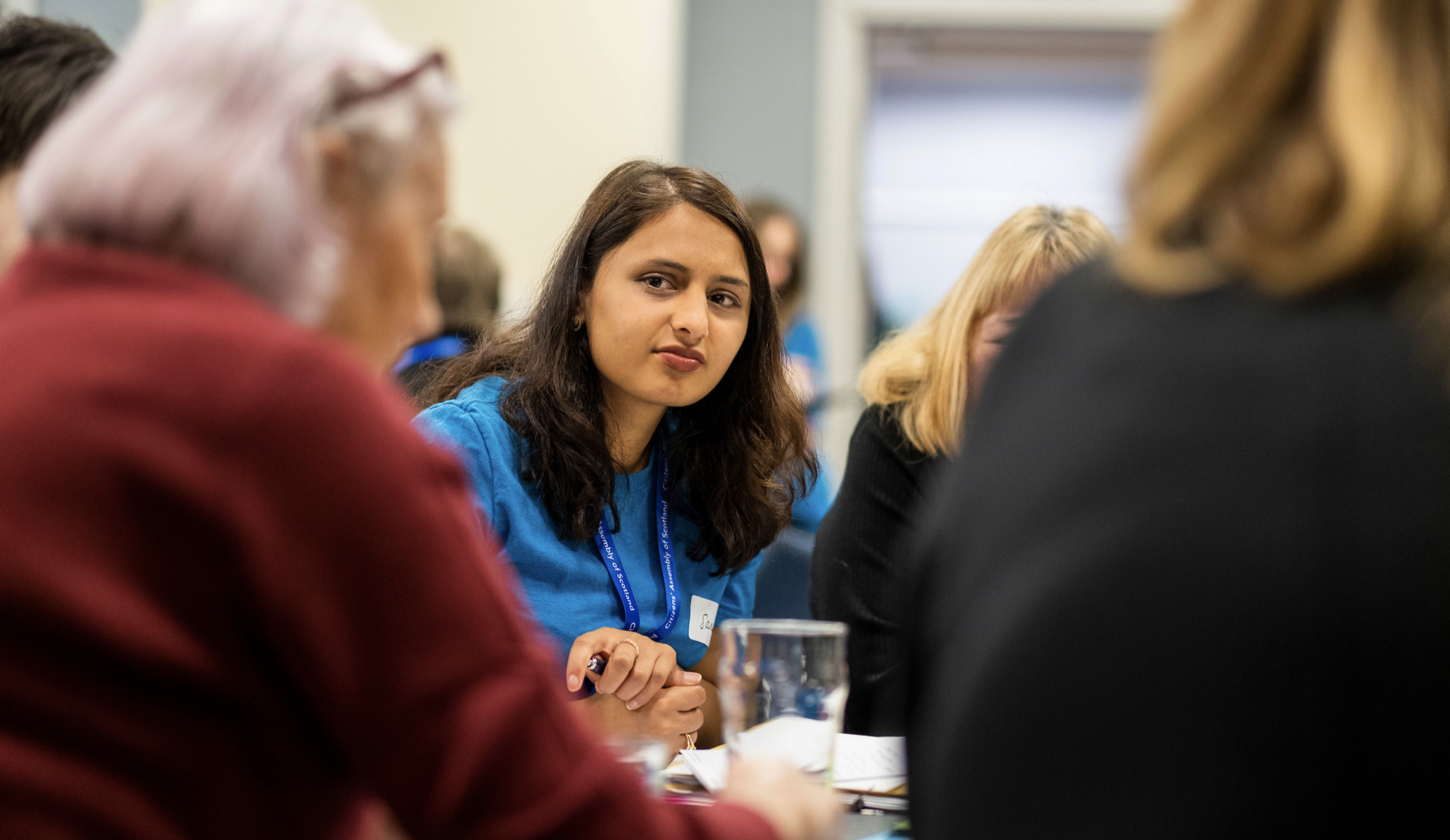Belgium
Parlement francophone bruxellois
Since December 2019
 15th.
15th.
In December 2019, the French-speaking Parliament of Brussels voted a modification of its rules to integrate deliberative commissions which allow the Parliament to be opened to citizens drawn by lot in order to allow them to deliberate with their elected representatives on specific themes and to formulate recommendations with the latter. The integration of these commissions directly into the rules of the French-speaking Parliament of Brussels ensures the institutionalization of this deliberative process which is now an integral part of the functioning of this Parliament.
"Improving the quality of public decision-making through participatory democracy mechanisms."
Deliberative commissions aim to respond to the growing deficit of trust between citizens and parliamentarians, and to give new meaning to political citizenship. The use of deliberation between citizens chosen by lot and parliamentarians allows to decide on important issues and to find, collectively, an ambitious solution.
A commission is composed of ¼ of parliamentarians and ¾ of citizens. The selection of citizens is done by a double draw. The drawing of lots allows for the participation of people who are far from participation and decision-making. The draw is made via the national register numbers of the Brussels citizens. Residents of the Brussels-Capital Region who are 16 years of age or older are eligible for the draw. There are no exclusion criteria based on nationality or time of residence. During the first draw, 10,000 letters are sent to the Brussels residents selected at random. The second draw is then carried out among the respondents of the first draw. This second draw selects the participants who will sit in the Parliament during the deliberative commissions as well as their substitutes. It serves to compensate for inequalities in participation and takes into account the following socio-demographic criteria: gender, age, geographical distribution, language, and level of education.
A deliberative commission is a place for debate between parliamentarians and citizens chosen by lot (¼ of parliamentarians, ¾ of citizens). A deliberative commission can be convened to deal with a theme that can be proposed either by one or more political groups or by a citizen who introduces a citizen suggestion.
The selection of citizens is done by a double draw. The drawing of lots makes it possible to involve people who are far from participation and decision-making. The draw is made via the national register numbers of Brussels citizens. Residents of the Brussels-Capital Region who are 16 years of age or older are eligible for the draw. There are no exclusion criteria based on nationality or length of residence. During the first draw, 10,000 letters are sent to the Brussels women selected at random. The second draw is then carried out among the respondents to the first draw. This second draw selects the participants who will sit in the Parliament during the deliberative committees as well as their substitutes. It serves to compensate for inequalities in participation and takes into account the following socio-demographic criteria: gender, age, geographical distribution, language, level of education.
The deliberation process is divided into three stages: the information phase, the deliberative phase and the voting phase. These three stages are preceded by a preparatory phase.
Following the second draw, an information session on the process for participants and parliamentarians is planned. The purpose of this briefing is to explain the different stages of the process, with a particular focus on the publicity of the debates and the question of anonymity, and to examine any specific support that may be required. Particular attention is paid to four target groups that are less likely to respond: young people, people furthest from participation and decision-making, people with disabilities and people with young children. Specific information sessions and other measures are planned for these groups.
At the first meetings, experts present a fact sheet to the participants and parliamentarians. Hearings of various actors are organised to contribute to the appropriation and knowledge of the subject.

Then, the deliberation phase separates the participants into small groups to allow them to deliberate and formulate recommendations that will then be shared.
After several meetings of the deliberative committee, parliamentarians and citizens together propose recommendations that will be dealt with in the parliament. The recommendations may lead to legislation, questions to the government and thus guide political decisions. Within 6 months after the end of the deliberative commission, the parliamentarians who participated in the deliberative commission are obliged to follow up on the recommendations, which will be presented publicly to the citizens who participated in the deliberative commission and published on the platform democratie.brussels.

Sources
- Website
- Candidacy file (in French)